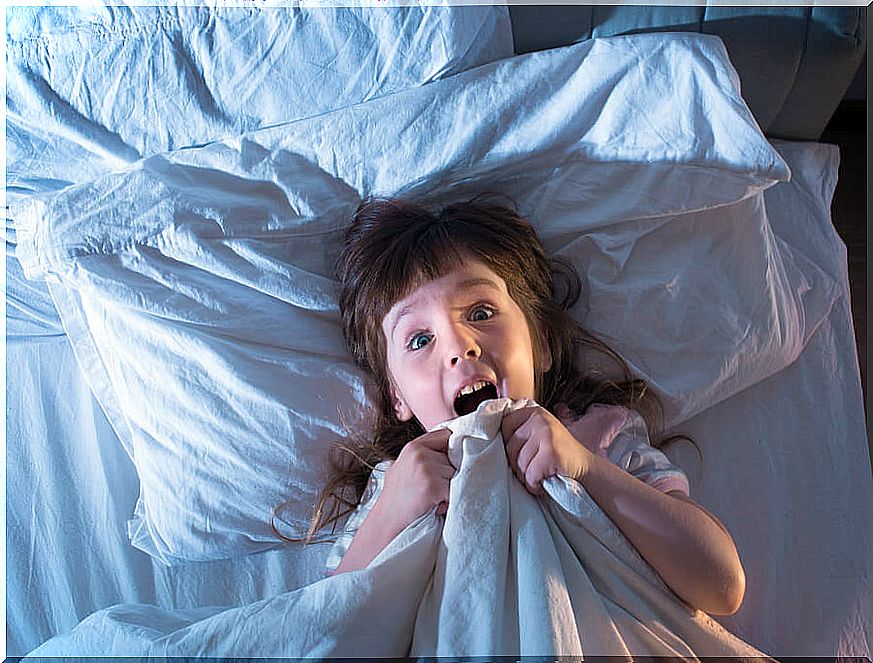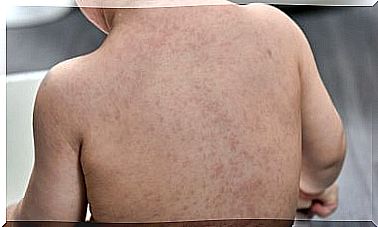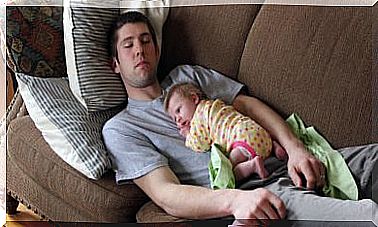Psychological Treatment Of Nightmares In Children
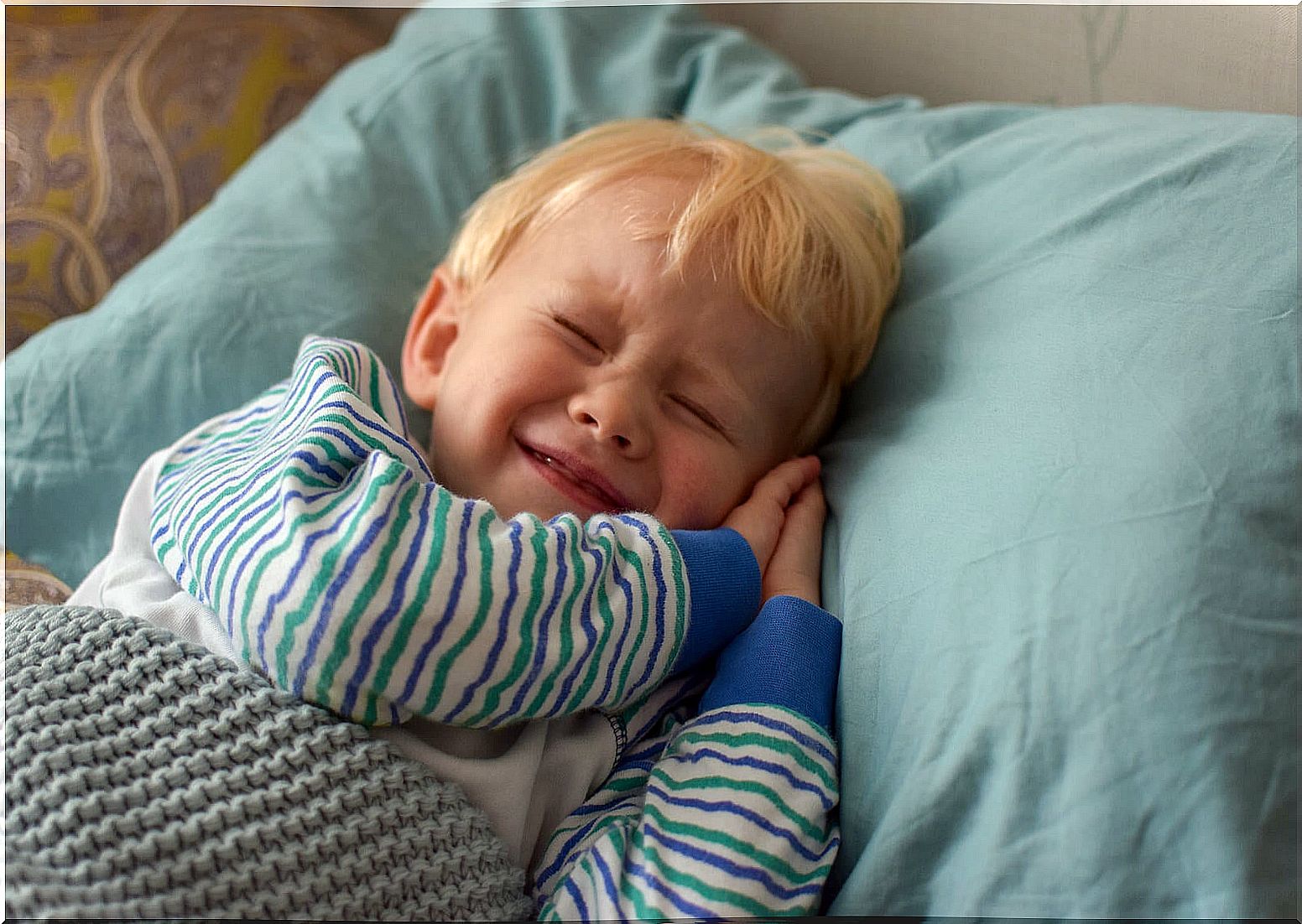
Sleep is a physiological process of incalculable value for the correct development of children. However, throughout childhood and adolescence it is common for various alterations to arise; nightmares are one of the most common.
These episodes are frequent in minors and do not suppose, a priori , any pathology. However, when they occur repeatedly, psychological treatment for nightmares is essential.
It is estimated that between 10% and 50% of the child population has nightmares, since it is at this age when there is a higher prevalence of the disorder. As the child progresses into adolescence, its frequency decreases, making it much less common in adulthood. However, given the discomfort that nightmares can generate in minors, it is important to follow certain guidelines to minimize their appearance.
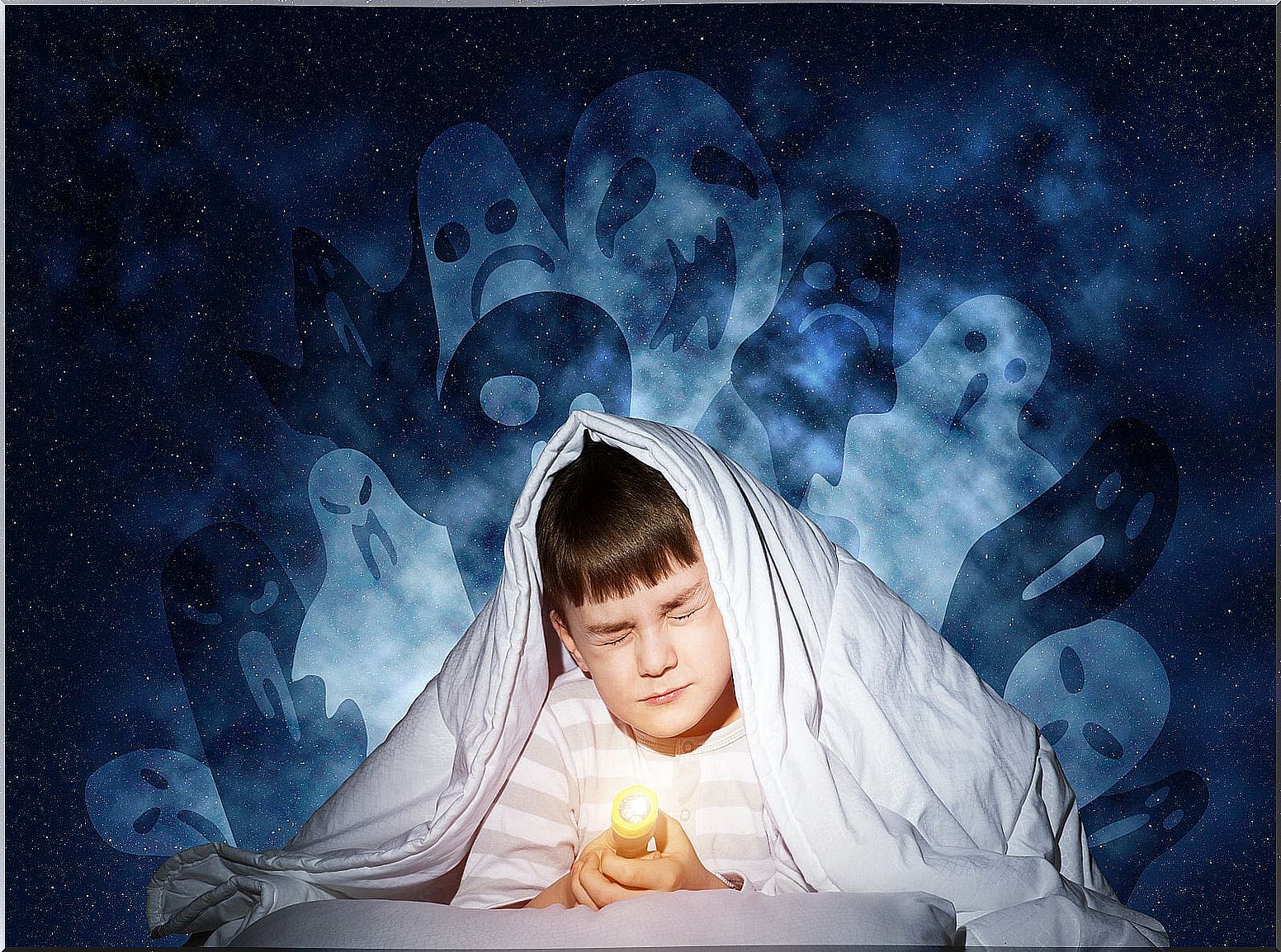
Psychological treatment of nightmares in children
Nightmares are a type of parasomnia characterized by the presence of sleep episodes with a high content of anxiety. The child has unpleasant and frightening daydreams, often causing awakening and disruption of sleep. The causes of nightmares can be diverse, but are generally related to some of the following aspects:
- Emotional disturbance generated by having witnessed, heard or imagined frightening scenes.
- A general state of anxiety that can arise from any stressful event in the child’s life. From the separation of parents, to a move or a problem with schoolmates.
- Lying down excessively restless or active.
Sleep hygiene
Therefore, many times the most effective psychological treatment for nightmares consists of implementing good sleep hygiene. Following a few simple guidelines can help us achieve this:
- Make sure your child goes to bed and gets up at the same times every day.
- Make sure the length of their break is long enough based on their age
- Avoid letting your little one watch movies or read books related to issues that may cause fear. It is especially important that you do not consume this type of content near bedtime.
- If you detect that his anxiety level is high, try to help him lower it. Breathing, meditation, and relaxation techniques can be very helpful in this regard.
Systematic desensitization
When nightmares are recurrent, it may be necessary to resort to other types of interventions, such as systematic desensitization. This technique is based on generating, before the scenes of the nightmare, an emotion incompatible with fear. It is not possible for the little one to feel fearful and relaxed at the same time; therefore, we must try to associate the nightmare with a feeling of inner calm.
To do this, the child is induced to relax and then asked to imagine various scenes related to the nightmare, but trying to maintain that relaxation. In this way, you get used to what was causing you fear and now relate it to a feeling of relaxation. Thus, the nightmare loses its ability to generate anxiety.
However, younger children may have difficulty practicing relaxation, so it is more convenient to use emotional role plays.
Imagination Rehearsal Therapy
This technique consists of changing the content of the dream to make it more positive or tolerable. Thus, in the first place, the child is asked to narrate the nightmare in great detail. Next, the nightmare is rewritten and the ending is modified or certain aspects are changed to make it more pleasant and less scary.

Finally, this new version is repeated until it is imprinted on the child’s unconscious. In this way, when you have that same dream again, it will present itself with the new ending and will stop generating fear and discomfort.
Psychological treatment of nightmares in children is not always necessary
Although the previous treatments have been shown to be effective in reducing or eliminating nightmares in children, it is not always necessary to resort to them.
These episodes are often temporary and tend to improve as the infant grows older. In addition, on many occasions good sleep habits and an adequate emotional state prevent the appearance of nightmares. However, when the problem creates significant discomfort or interferes with the child’s rest, it needs to be addressed.
